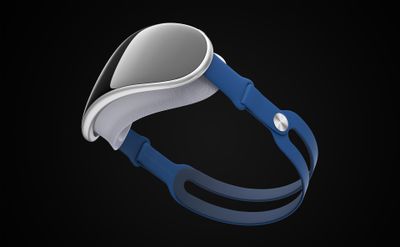Apple has asked Samsung Display to develop micro OLED panels in an effort to diversify its supply ahead of next year's launch of its widely rumored AR/VR glasses, claims a new report.

According to The Elec, Samsung Display has received requests from several of its customers to start developing the microdisplays, including Apple, Meta, and its parent company, Samsung.
Samsung Display is said to have avoided developing the panels so far because of their expected low profitability, but micro LED appears set to become a key technology in the nascent AR/VR headset market as multiple companies gear up to launch rival products.
Micro OLED displays are built directly onto chip wafers rather than a glass substrate, which results in displays that are thinner, smaller, and more power efficient. They allow for pixel sizes in the range of four to 20 micrometers, compared to 40 to 300 micrometers with standard OLED panels, plus they have a faster microseconds response time, making them ideal for AR/VR applications.
Rumors suggest Apple's AR/VR headset will have two to three displays, with at least two being high-resolution 4K micro OLED displays with up to 3,000 pixels per inch. Sony is expected to supply the display modules that Apple will use, although today's report claims LG Display is also in the running to supply Apple with micro LED panels next year.
Samsung Display will reportedly supply a conventional OLED panel for the device, perhaps for peripheral vision where a lower resolution would be acceptable. Samsung Display will then attempt to supply micro LED panels for the second-generation device.
Apple's first headset is expected to be unveiled at a special event in January 2023, while the follow-up device, likely featuring a more high-end configuration and a new affordable option, is expected to launch in 2025, according to analyst Ming-Chi Kuo.


















